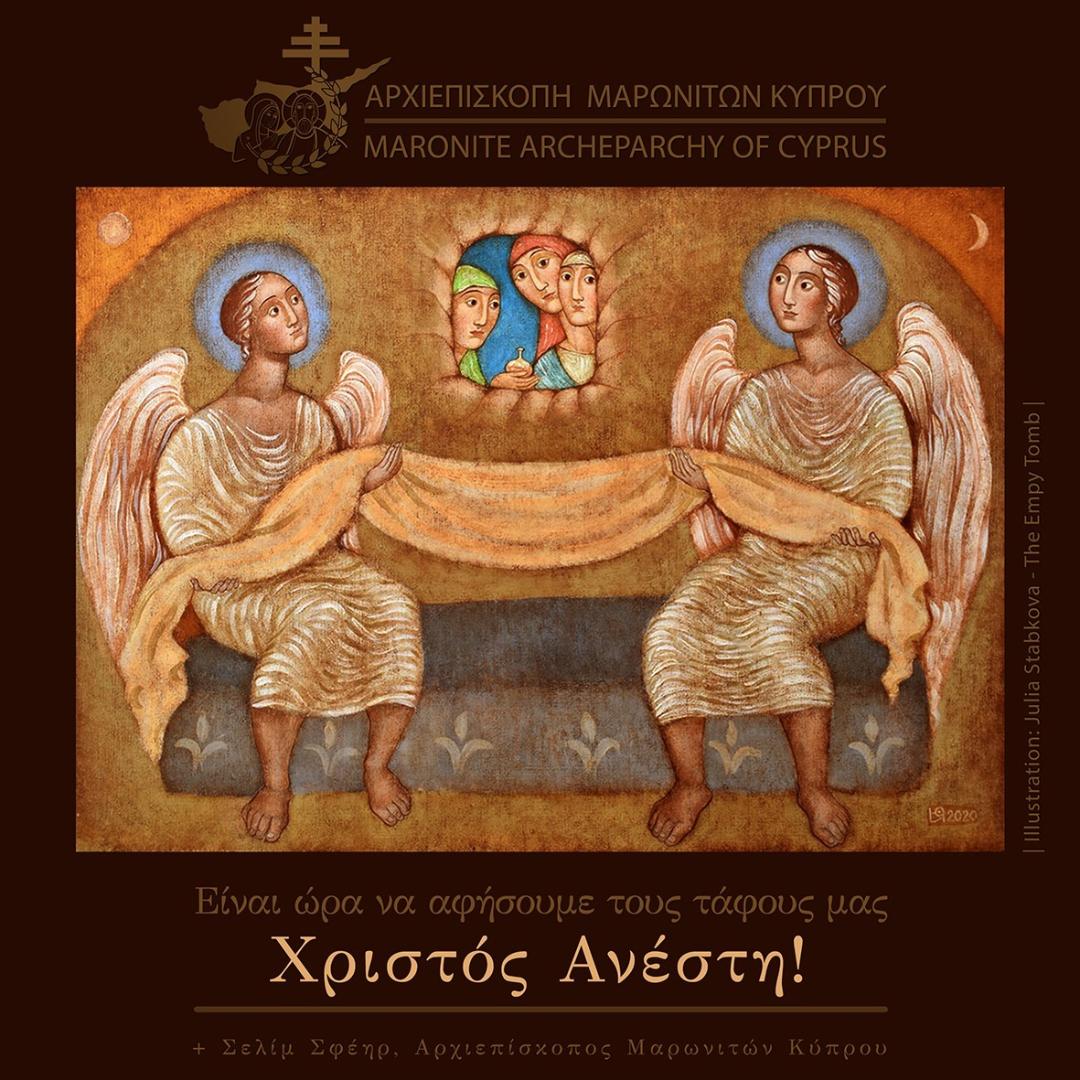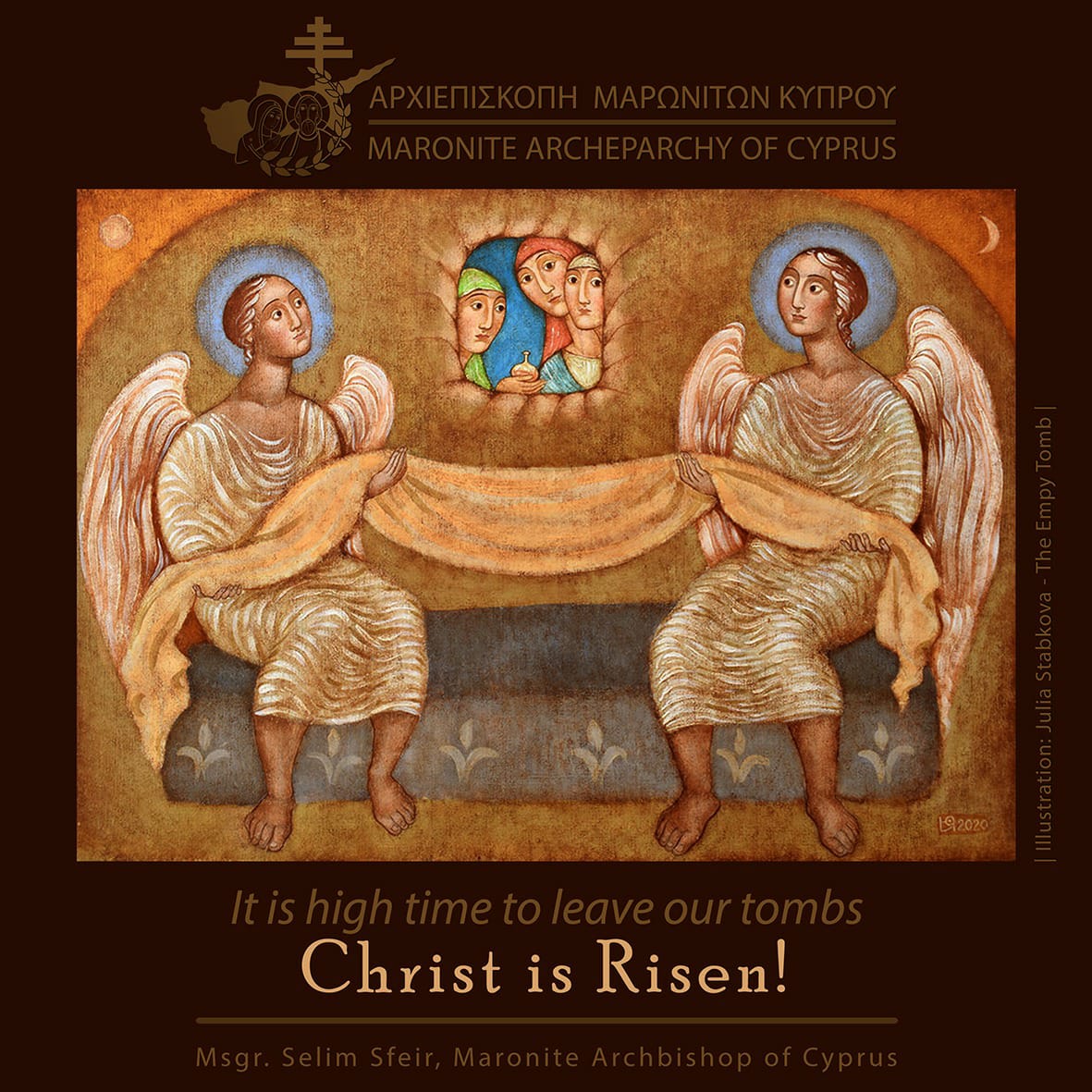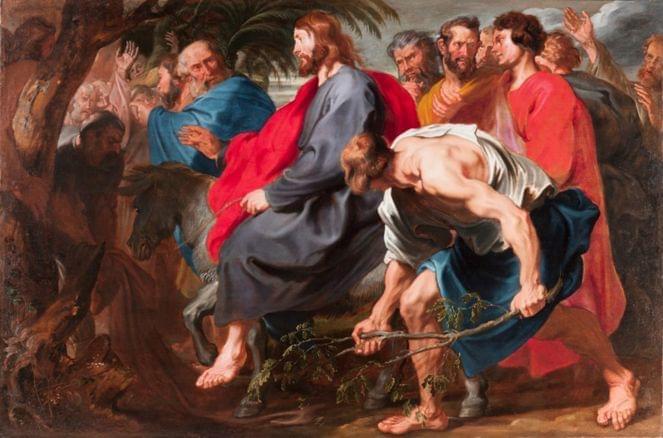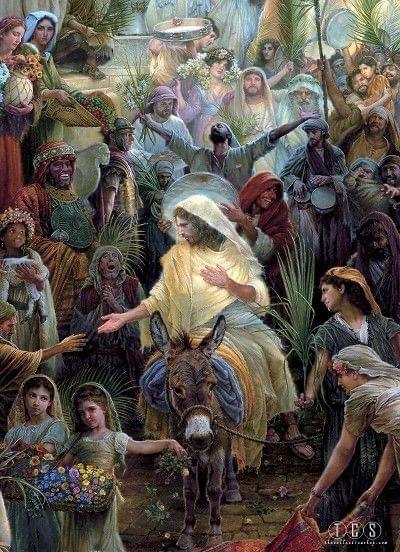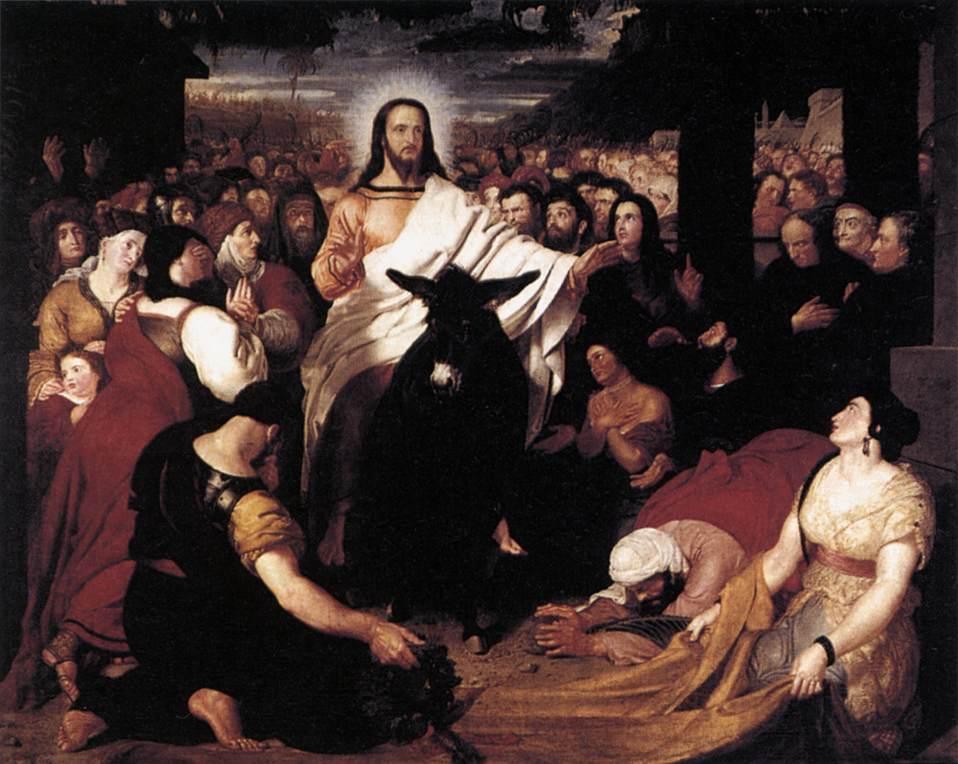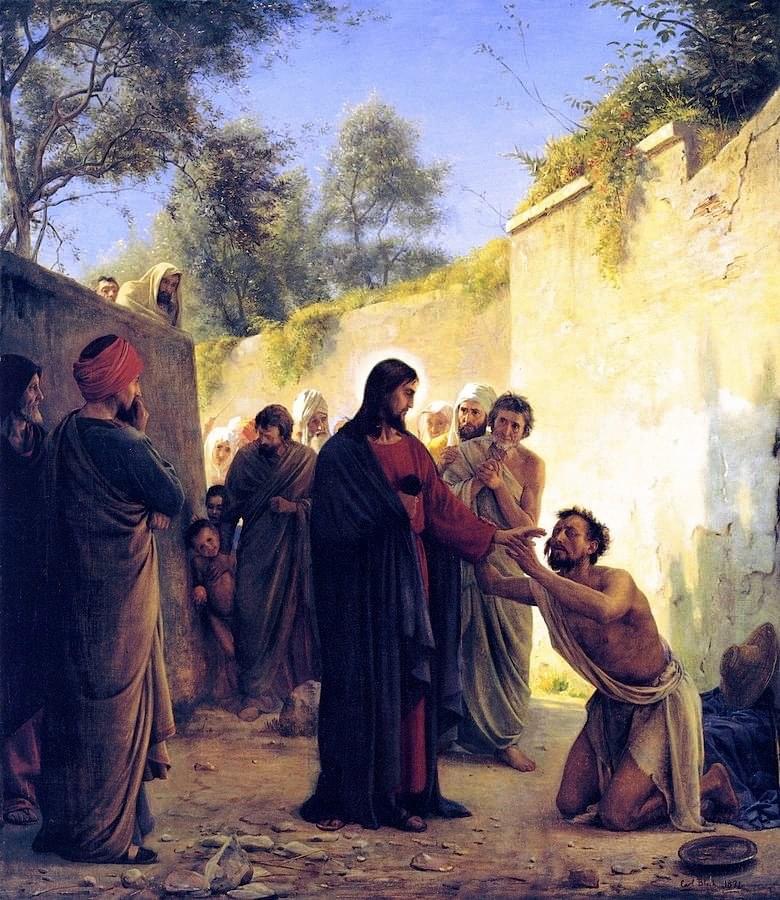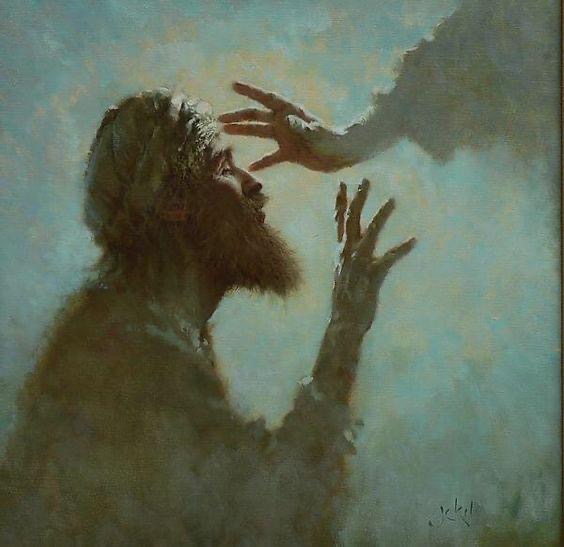Message de Pâques 2024 de Son Excellence Mgr Selim Jean Sfeir Archevêque Maronite de Chypre
Christ est ressuscité !
Chers frères et soeurs en Christ,
Christ est ressuscité !
Le Dieu de l'amour et de la vie a vaincu la mort et offre une vie nouvelle à quiconque
croit et identifie sa vie à Jésus-Christ ressuscité.
En ce jour saint de Pâques, alors que nous nous réunissons dans la joie et la gratitude,
réfléchissons tous à la signification profonde de la résurrection de notre Seigneur.
Pâques n'est pas seulement la célébration de la vie sur la mort, c'est aussi le
témoignage de la puissance de l'amour divin. C'est un rappel poignant que même
dans les moments les plus sombres de notre vie, il y a de l'espoir, il y a de la lumière,
il y a la possibilité d'une conversion et d'une transformation.
L'humanité connaît aujourd'hui de terribles tragédies qui découlent du mal humain.
Les guerres, les conflits, les conflits sanglants, la faim et la discorde frappent non
seulement notre région mais aussi la planète entière. L'égoïsme humain l'emporte
désormais sur l'unité, même au sein de la famille et de la société.
La résurrection du Christ nous enseigne que la réconciliation est possible, que la paix
est possible. En tant que disciples du Christ, baptisés au nom du Père, du Fils et du
Saint-Esprit, nous sommes appelés à être des ouvriers de paix, au service de l'unité
et de la compréhension mutuelle.
Jésus ressuscité est le seul à donner à l'homme l'espoir tangible que la bonté et
l'amour l'emportent toujours.
Mettons notre confiance en celui qui nous a ouvert le chemin de la vie, en celui qui
a donné sa vie pour nous afin de nous offrir la rédemption de nos péchés et de nos
faiblesses. En ce jour saint, engageons-nous à devenir meilleurs et devenir de
meilleurs chrétiens.
Que cette Pâque soit un temps de renouveau spirituel pour chacun d'entre nous.
Trouvons la force et le courage de pardonner, de guérir les blessures du passé et de
construire un avenir meilleur.
Souvenons-nous que la vraie victoire réside dans l'amour démesuré de Dieu.
Tournons-nous vers Celui qui nous a aimés jusqu'à se sacrifier et qui est ressuscité
pour nous donner une vie nouvelle. Abandonnons notre passé, ouvrons nos cœurs et
nos esprits, et empruntons le chemin de l'amour, de la bonté, de la réconciliation, de
la fraternité et de la solidarité.
Que la lumière et l'amour du Christ remplissent nos cœurs et guident nos actions afin
que les valeurs de paix, de justice et de réconciliation prévalent, non seulement à
Chypre et au Moyen-Orient, mais aussi dans le monde entier.
Que la paix et la grâce du Christ ressuscité soient avec vous tous, maintenant et à
jamais.
+ Selim Sfeir
Archevêque Maronite de Chypre
Message of Easter 2024 of H.E. Msgr Selim Sfeir Maronite Archbishop of Cyprus
Christ is risen !
Dear brothers and sisters in Christ,
Christ is risen !
The God of love and life has conquered death and offers new life to all who believe
and identify their lives with the risen Jesus Christ.
On this holy day of Easter, as we gather in joy and gratitude, let us think about the
profound significance of the resurrection of our Lord.
Easter is not only a celebration of life over death; it is also a testimony to the power
of divine love. It is a poignant reminder that even in the darkest moments of our
lives, there is hope, there is light, there is the possibility of conversion and
transformation.
Humanity today faces terrible tragedies that stem from human evil. Wars, conflicts,
bloody strife, hunger and discord strike not only our region but the entire planet.
Human egoism now prevails over unity, even within the family and society.
The resurrection of Christ teaches us that reconciliation is possible, that peace is
possible. As followers of Christ, baptized in the name of the Father, of the Son and
the Holy Spirit, we are called to be peacemakers, serving unity and mutual
understanding.
The risen Jesus is the only one who gives mankind the tangible hope that goodness
and love will always prevail.
Let us place our trust in the one who opened the way to life for us, in the one who
gave his life for us in order to offer us redemption from our sins and weaknesses. On
this holy day, let us commit ourselves to becoming better, and better Christians.
May this Easter be a time of spiritual renewal for each and every one of us. May we
find the strength and courage to forgive, to heal the wounds of the past and to build
a better future.
Let us remember that true victory lies in God's immeasurable love. Let us turn to the
One who loved us to the point of sacrificing himself, and who rose again to give us
new life. Let us abandon our past, open our hearts and minds, and take the path of
love, kindness, reconciliation, brotherhood and solidarity.
May the light and love of Christ fill our hearts and guide our actions, so that the
values of peace, justice and reconciliation prevail, not only in Cyprus and the Middle
East, but also throughout the world.
May the peace and grace of the Risen Christ be with you all, now and forever.
+ Selim Sfeir
Maronite Archbishop of Cyprus
Messaggio di Pasqua 2024 da Sua Eccellenza Mons. Selim Sfeir Arcivescovo Maronita di Cipro
Cristo è risorto!
Cari fratelli e sorelle in Cristo,
Cristo è risorto!
Il Dio dell'amore e della vita ha vinto la morte e offre una nuova vita a chiunque
creda e identifichi la propria vita con Gesù Cristo risorto.
In questo santo giorno di Pasqua, mentre ci riuniamo nella gioia e nella gratitudine,
riflettiamo tutti sul significato profondo della risurrezione di nostro Signore.
La Pasqua non è semplicemente la celebrazione della vita sulla morte, ma è anche la
testimonianza del potere dell'amore divino. È uno struggente promemoria del fatto
che anche nei momenti più bui della nostra vita c'è speranza, c'è luce, c'è possibilità
di conversione e trasformazione.
L'umanità di oggi sta vivendo terribili tragedie che derivano dalla malvagità umana.
Guerre, conflitti, scontri sanguinosi, fame e discordia affliggono non solo la nostra
regione, ma anche l'intero pianeta. L'egoismo umano ha ormai la meglio sull'unità
anche all'interno della stessa famiglia e della società.
La risurrezione di Cristo ci insegna che la riconciliazione è possibile, che la pace è
possibile. Come discepoli di Cristo, battezzati nel nome del Padre, del Figlio e dello
Spirito Santo, siamo chiamati a essere operatori di pace, al servizio dell'unità e della
comprensione reciproca.
Gesù risorto è l'unico che dà all'uomo la speranza tangibile che il bene e l'amore
vincano sempre. Affidiamoci a Colui che ci ha aperto la via della vita, a Colui che
ha dato la vita per noi per offrirci la redenzione dal male e dal nostro io malvagio.
In questo giorno santo promettiamo a noi stessi che saremo cristiani migliori e
persone migliori.
Che questa Pasqua sia un momento di rinnovamento spirituale per ciascuno di noi.
Troviamo la forza e il coraggio di perdonare, di guarire le ferite del passato e di
costruire un futuro migliore.
Che la vera vittoria è nell'amore supremo di Dio. Avviciniamoci a
Colui che ci ha amato fino alla morte ed è risorto per darci una nuova vita.
Lasciamoci alle spalle la nostra vecchia vita, apriamo i nostri cuori e le nostre menti
e camminiamo sul sentiero dell'amore, della gentilezza, della riconciliazione, della
fratellanza e della solidarietà.
Che la luce e l'amore di Cristo riempiano i nostri cuori e guidino le nostre azioni per
lavorare per la prevalenza dei valori di pace, giustizia e riconciliazione non solo nella
nostra Cipro e nel Medio Oriente, ma anche nel mondo intero.
La pace e la grazia del Signore risorto siano con tutti voi, oggi e sempre.
+ Selim Sfeir
Arcivescovo Maronita di Cipro
Πασχαλινό μήνυμα 2024
Αγαπητά εν Χριστώ αδέλφια,
Χριστός Ανέστη!
Ο Θεός της αγάπης και της ζωής νίκησε τον θάνατο και προσφέρει τη νέα ζωή σε
όποιον πιστεύει και ταυτίζει την ζωή του με τον Αναστημένο Ιησού Χριστό.
Σε αυτήν την άγια ημέρα του Πάσχα, καθώς συγκεντρωνόμαστε με χαρά και
ευγνωμοσύνη, ας αναλογιστούμε όλοι μας το βαθύ νόημα της Ανάστασης του
Κυρίου μας.
Το Πάσχα δεν είναι απλά η γιορτή της ζωής επι του θανάτου, αλλά είναι επίσης η
μαρτυρία της δύναμης της θείας αγάπης. Είναι μια συγκινητική υπενθύμιση ότι
ακόμα και στις πιο σκοτεινές στιγμές της ζωής μας, υπάρχει ελπίδα, υπάρχει φως,
υπάρχει η δυνατότητα μεταστροφής και μεταμόρφωσης.
H ανθρωπότητα σήμερα ζει φρικτές τραγωδίες που προέρχονται από την ανθρώπινη
κακία. Πόλεμοι, συγκρούσεις, αιματηρές διενέξεις, πείνα και διχόνοια μαστίζουν
όχι μόνο την κοντινή μας περιοχή αλλά και όλο τον πλανήτη. Ο ανθρώπινος
εγωισμός, υπερέχει πλέον της ενότητας ακόμη και μέσα στην ίδια την οικογένεια
και μέσα στην κοινωνία.
Η Ανάσταση του Χριστού μας διδάσκει ότι η συμφιλίωση είναι δυνατή, ότι η ειρήνη
είναι εφικτή. Ως μαθητές του Χριστού, βαπτισμένοι στο όνομα του Πατρός, του
Υιού και του Αγίου Πνεύματος, καλούμαστε να είμαστεεργάτες ειρήνης,
υπηρετώντας την ενότητα και την αμοιβαία κατανόηση.
Ο Αναστημένος Ιησούς είναι ο μόνος που δίνει χειροπιαστή ελπίδα στον άνθρωπο
ότι η καλοσύνη και η αγάπη πάντα νικούν. Ας θέσουμε την εμπιστοσύνη μας σε
Εκείνον που μας άνοιξε το δρόμο της ζωής, σε Εκείνον που έδωσε τη ζωή Του για
μας για να μας προσφέρει τη λύτρωση από το κακό αλλά και από τον κακό μας
εαυτό. Σε αυτή την Άγια μέρα ας υποσχεθούμε στον εαυτό μας ότι θα γίνουμε
καλύτεροι χριστιανοί και καλύτεροι άνθρωποι.
Ας είναι το Πάσχα αυτό ένας χρόνος πνευματικής ανανέωσης για τον καθέναν από
εμάς. Ας βρούμε τη δύναμη και το θάρρος να συγχωρήσουμε, να θεραπεύσουμε τις
πληγές του παρελθόντος και να χτίσουμε ένα καλύτερο μέλλον.
Ας θυμόμαστε ότι η πραγματική νίκη βρίσκεται στην υπέρτατη αγάπη του Θεού. Ας
πλησιάσουμε σε Εκείνον που μας αγάπησε μέχρι θανάτου και αναστήθηκε για να
μας δώσει νέα ζωή. Ας αφήσουμε πίσω μας την παλιά μας ζωή, ας ανοίξουμε την
καρδιά και το μυαλό κι ας βαδίσουμε στον δρόμο της αγάπης, της καλοσύνης, της
συμφιλίωσης, της αδελφοσύνης και της αλληλεγγύης.
Το φως και η αγάπη του Χριστού μας ας γεμίσει τις καρδιές μας και ας καθοδηγήσει
τις πράξεις μας ώστε να εργαζόμαστε για την επικράτησή των αξιών της ειρήνης,
της δικαιοσύνης και της συμφιλίωσης όχι μόνο στην Κύπρο μας και στην Μέση
Ανατολή αλλά και σε όλο τον κόσμο.
Η ειρήνη και η χάρη του Αναστημένου Κυρίου να είναι μαζί με όλους σας, σήμερα
και πάντοτε.
Αληθώς Ανέστη!
+ Σελίμ Σφέηρ
Αρχιεπίσκοπος Μαρωνιτών Κύπρου
Temps du Grand Carême 7ème dimanche du Carême
Dimanche des Rameaux (Jean 12 : 12-22)
Chers frères et sœurs en Christ,
Jésus entra à Jérusalem, monté sur un âne, accomplissant la prophétie qui dit : "Sois transportée d`allégresse, fille de Sion! Pousse des cris de joie, fille de Jérusalem! Voici, ton roi vient à toi; Il est juste et victorieux, Il est humble et monté sur un âne, Sur un âne, le petit d`une ânesse." Zacharie 9:9. La foule lui fit bon accueil, agitant des branches de palmier et d'olivier, en criant : "Hosanna ! Béni soit celui qui vient au nom du Seigneur, le roi d`Israël!", Hosanna signifiant "sauve-nous", c'était le cri de joie populaire à l'entrée de Jésus à Jérusalem. Un cri que nous répétons encore dans nos chants le dimanche des Rameaux précédant la semaine de Pâques. Cette expression n'était pas nouvelle, mais elle était une expression prophétique messianique qui se trouve dans le livre des Psaumes : "Béni soit celui qui vient au nom du Seigneur. Nous vous bénissons de la maison de l'Éternel. L'Éternel est Dieu, et il nous éclaire. Attachez la victime avec des liens, Amenez-la avec des branches jusqu`aux cornes de l`autel!" Psaume 118:26-27
Cette expression décrit l'identité de celui dont elle est prononcée, il est roi, prêtre et prophète.
Roi, car il entre dans sa ville, monté sur un âne comme le faisaient les rois de l'ancienne alliance lorsqu'ils venaient vers leurs sujets porteurs de paix, non pas sur un cheval symbolisant une guerre imminente.
Prophète, car il vient au nom du Seigneur, portant le message de Dieu à son peuple.
Et prêtre, car le sacrifice est préparé pour lui, attaché aux cornes de l'autel, et c'est lui qui l'offrira à Dieu pour expier les péchés de son peuple.
Ils ont crié cette expression prophétique sans réaliser que celui qui venait vers eux accomplissait son sens à la lettre. Ils ont élevé leurs voix en répétant les paroles du psaume avec joie, attendant l'entrée de Jésus, sans être conscients de son identité messianique. Ils lui ont crié et n'ont pas réalisé qu'il était le sacrifice qui serait cloué sur la Croix pour être leur "Sauveur", la raison de leur salut éternel.
Quant à lui, il savait tout ! C'était un jour de joie pour le peuple, et le début de ses souffrances rédemptrices. Comme un père conduit par ses enfants pour mourir à leur place, il marchait parmi eux dans le silence de l'amour sacrificiel, portant leurs péchés et leurs peines alors qu'ils exultaient en le louant. Tout ce qu'il voulait, c'était de voir la joie du salut sur leurs visages, réalisant la prophétie d'Isaïe qui dit : " Il a été maltraité et opprimé, Et il n’a point ouvert la bouche, Semblable à un agneau qu`on mène à la boucherie, A une brebis muette devant ceux qui la tondent; Il n`a point ouvert la bouche. " Isaïe 53:7
Oui, mes frères et mes sœurs bien-aimés, c'est notre Christ qui vient vers nous comme un roi humble, comme l'agneau du sacrifice innocent, monté sur un âne humble, et non pas sur un cheval de guerre brandissant l'épée de la justice divine pour se venger de nos péchés.
Il est le plus grand prophète de Dieu et son fils unique, le prêtre de la nouvelle alliance qui s'offre lui-même à Dieu le Père en sacrifice pour nous cette semaine sainte à venir.
Sortons donc à sa rencontre, portant des rameaux de palmier et d'olivier, criant de tout notre cœur "Hosanna", c'est-à-dire "libère-nous" et vivons vraiment cette expression. Croyons qu'il est celui qui vient au nom du Seigneur pour nous sauver, pour porter nos péchés. Criaillons vers lui "Sauve-nous", confessant nos péchés, et que ce cri soit un véritable acte de repentance transformant nos vies et nous conduisant à l'autel de l'église, à l'offrande qui nous rapproche de lui, afin que nous vivions à chaque liturgie le sacrifice de la Pâque qui s'offre à nous éternellement, afin que nous puissions recevoir de lui la raison de notre salut.
Portons-lui des rameaux de palmier et d'olivier et sortons à sa rencontre, non seulement aujourd'hui, mais chaque jour de notre vie, sortons à sa rencontre avec l'esprit de victoire qu'il a réalisée sur la croix et qui nous a affranchis de l'esclavage du péché. Sortons aujourd'hui pour le rencontrer avec la vraie joie, car il est notre unique Sauveur et personne d'autre ne mérite que nous criions vers lui "Sauve-nous".
† Selim Sfeir
Archevêque Maronite de Chypre
Περίοδος της Μεγάλης Σαρακοστής 7η Κυριακή της Σαρακοστής Kυριακή των Βαίων (Ιωάννης 12 / 12-22)
Kυριακή των Βαίων (Ιωάννης 12 / 12-22)
Αγαπητά εν Χριστώ αδέλφια,
Ο Ιησούς μπήκε στην Ιερουσαλήμ πάνω σ' ένα γαιδουράκι εκπληρώνοντας την προφητεία που λέει: «Χαίρε, θυγατέρα της Σιών! Φώναξε από χαρά, κόρη της Ιερουσαλήμ! Ιδού, ο Βασιλιάς σου έρχεται σε σένα- είναι δίκαιος και νικητής, είναι ταπεινός και κάθεται πάνω σε γάιδαρο, πάνω σε γαϊδουράκι, πουλάρι γαϊδούρας». Ζαχαρίας 9:9. Το πλήθος τον υποδέχτηκε, ανεμίζοντας κλαδιά φοίνικα και ελιάς και φωνάζοντας «Ωσαννά! Ευλογημένος αυτός που έρχεται στο όνομα του Κυρίου, ο βασιλιάς του Ισραήλ!» Ωσαννά, που σημαίνει «σώσε μας», ήταν η λαϊκή κραυγή χαράς όταν ο Ιησούς εισήλθε στην Ιερουσαλήμ. Είναι μια κραυγή που επαναλαμβάνουμε ακόμα στα τραγούδια μας την Κυριακή των Βαΐων πριν από την εβδομάδα του Πάσχα. Η έκφραση αυτή δεν ήταν καινούργια, αλλά ήταν μια μεσσιανική προφητική έκφραση που συναντάται στο βιβλίο των Ψαλμών: «Ευλογημένος αυτός που έρχεται στο όνομα του Κυρίου. Σας ευλογούμε από τον οίκο του Κυρίου. Ο Κύριος είναι Θεός και μας δίνει φως. Δέστε το θύμα με δεσμά, φέρτε το με κλαδιά στα κέρατα του θυσιαστηρίου!». Ψαλμός 118:26-27
Αυτή η έκφραση περιγράφει την ταυτότητα εκείνου για τον οποίο εκφωνείται: είναι βασιλιάς, ιερέας και προφήτης.
Βασιλιάς, επειδή εισέρχεται στην πόλη του καβάλα σε ένα γαϊδουράκι, όπως ακριβώς έκαναν οι βασιλιάδες της Παλαιάς Διαθήκης όταν έρχονταν στους υπηκόους τους ως φορείς ειρήνης, και όχι πάνω σε άλογο που συμβόλιζε τον επικείμενο πόλεμο.
Προφήτης, επειδή έρχεται στο όνομα του Κυρίου, μεταφέροντας το μήνυμα του Θεού στο λαό Του.
Και ιερέας, επειδή η θυσία είναι έτοιμη γι' αυτόν, δεμένη στα κέρατα του θυσιαστηρίου, και είναι Αυτός που θα την προσφέρει στον Θεό για να εξιλεωθεί για τις αμαρτίες του λαού Του.
Φώναζαν αυτή την προφητική έκφραση χωρίς να συνειδητοποιούν ότι αυτός που ερχόταν προς το μέρος τους εκπλήρωνε κατά γράμμα το νόημά της. Ύψωσαν τις φωνές τους, επαναλαμβάνοντας τα λόγια του ψαλμού με χαρά, περιμένοντας τον Ιησού να εισέλθει, χωρίς να έχουν επίγνωση της μεσσιανικής Του ταυτότητας. Τον φώναζαν και δεν συνειδητοποιούσαν ότι ήταν η θυσία που θα καρφωνόταν στον Σταυρό για να γίνει ο «Σωτήρας» τους, ο λόγος της αιώνιας σωτηρίας τους.
Όσο γι' αυτόν, ήξερε τα πάντα! Ήταν μια μέρα χαράς για τους ανθρώπους και η αρχή των λυτρωτικών τους δεινών. Σαν πατέρας που οδηγείται από τα παιδιά Του για να πεθάνει στη θέση τους, περπατούσε ανάμεσά τους με τη σιωπή της θυσιαστικής αγάπης, σηκώνοντας τις αμαρτίες και τις θλίψεις τους, ενώ εκείνοι χαιρόντουσαν δοξάζοντάς Τον. Το μόνο που ήθελε ήταν να δει τη χαρά της σωτηρίας στα πρόσωπά τους, εκπληρώνοντας την προφητεία του Ησαΐα: «Κακοποιήθηκε και καταπιέστηκε και δεν άνοιξε το στόμα του, σαν αρνί που οδηγείται στη σφαγή, σαν πρόβατο βουβό μπροστά σ' αυτούς που το κουρεύουν- δεν άνοιξε το στόμα του.» Ησαΐας 53:7
Ναι, αγαπημένοι μου αδελφοί και αδελφές, είναι ο Χριστός μας που έρχεται σε μας ως ταπεινός βασιλιάς, ως το αρνί της αθώας θυσίας, καβάλα σε ένα ταπεινό γαϊδουράκι, όχι σε ένα πολεμικό άλογο που κραδαίνει το σπαθί της θείας δικαιοσύνης για να εκδικηθεί τις αμαρτίες μας.
Είναι ο μεγαλύτερος προφήτης και μοναχογιός του Θεού, ο ιερέας της Νέας Διαθήκης που προσφέρει τον εαυτό Του στον Θεό Πατέρα ως θυσία για εμάς την ερχόμενη Μεγάλη Εβδομάδα.
Ας βγούμε λοιπόν να τον συναντήσουμε, κρατώντας κλαδιά φοίνικα και ελιάς, φωνάζοντας με όλη μας την καρδιά «Ωσαννά», που σημαίνει «ελευθέρωσέ μας», και ας ζήσουμε πραγματικά αυτή την έκφραση. Ας πιστέψουμε ότι είναι Αυτός που έρχεται στο όνομα του Κυρίου για να μας σώσει, για να σηκώσει τις αμαρτίες μας. Ας του φωνάξουμε «Σώσε μας», εξομολογούμενοι τις αμαρτίες μας, και ας είναι αυτή η κραυγή μια αληθινή πράξη μετάνοιας που μεταμορφώνει τη ζωή μας και μας οδηγεί στο θυσιαστήριο της εκκλησίας, στην προσφορά που μας φέρνει πιο κοντά Του, έτσι ώστε σε κάθε λειτουργία να βιώνουμε τη θυσία του Πάσχα που μας προσφέρεται αιώνια, για να μπορούμε να λάβουμε από Εκείνον τον λόγο της σωτηρίας μας.
Ας του φέρουμε φοίνικες και κλαδιά ελιάς και ας βγούμε να Τον συναντήσουμε, όχι μόνο σήμερα, αλλά κάθε μέρα της ζωής μας, ας βγούμε να Τον συναντήσουμε με το πνεύμα της νίκης που πέτυχε στο σταυρό και που μας απελευθέρωσε από τη σκλαβιά της αμαρτίας. Ας βγούμε σήμερα να Τον συναντήσουμε με αληθινή χαρά, γιατί είναι ο μόνος μας Σωτήρας και κανείς άλλος δεν αξίζει να του φωνάξουμε «Σώσε μας». Αμήν.
+ Σελίμ Σφέιρ
Αρχιεπίσκοπος Μαρωνιτών Κύπρου
Palm Sunday (John 12 : 12-22)
Great Lent period 7th Sunday of Lent, Hosanna (Palm) Sunday (John 12 : 12-22)
Great Lent period
7th Sunday of Lent
Homily of His Excellency Selim Sfeir
Maronite Archbishop of Cyprus
Palm Sunday
John 12 : 12-22
Dear brothers and sisters in Christ,
Jesus entered Jerusalem riding on a donkey, fulfilling the prophecy that says: “Rejoice greatly, O daughter of Zion! Shout, O daughter of Jerusalem! Behold, your King is coming to you; He is just and having salvation, Lowly and riding on a donkey, A colt, the foal of a donkey.” Zechariah 9:9. The crowd welcomed him, waving palm and olive branches and shouting, “Hosanna! Blessed be he who comes in the name of the Lord, the King of Israel!” Hosanna, means ‘save us’, and it was the popular cry of joy at Jesus' entry into Jerusalem. It is a cry we still repeat in our hymnals on Palm Sunday before Holy week.
This expression was not new, but it was a messianic prophetic expression found in the book of Psalms: “Blessed is he who comes in the name of the Lord. We bless you from the house of the Lord. The Lord is God, and he gives us light. Bind the sacrifice with cords to the horns of the altar!” Psalm 118:26-27
This expression describes the identity of the one from whom it is pronounced: he is king, priest and prophet.
King, because he enters his city, mounted on a donkey as did the kings of the Old Covenant when they came to their subjects bearers of peace, not on a horse symbolizing imminent war.
Prophet, because he comes in the name of the Lord, bringing God's message to his people.
And priest, because the sacrifice is prepared for him, tied to the horns of the altar, and it is he who will offer it to God to expiate the sins of his people.
They shouted this prophetic expression without realizing that the one coming towards them was fulfilling its literal meaning. They raised their voices, repeating the words of the psalm with joy, awaiting Jesus' entrance, unaware of his messianic identity. They cried out to him, not realizing that he was the sacrifice who would be nailed to the Cross to be their “Savior”, the reason for their eternal salvation.
As for him, he knew everything! It was a day of joy for the people, and the beginning of his redemptive sufferings. Like a father led by his children to die in their place, he walked among them in the silence of sacrificial love, bearing their sins and sorrows as they exulted in praising him. All he wanted was to see the joy of salvation on their faces, fulfilling Isaiah's prophecy that “He was abused and oppressed, And he didn't open his mouth, Like a lamb led to the slaughter, Like a sheep dumb before those who shear it; He didn't open his mouth”. Isaiah 53:7
Yes, dear brothers and sisters, it is our Christ who comes to us as a humble king, as the lamb of innocent sacrificial lamb, mounted on a humble donkey, not a warhorse brandishing the sword of divine justice to avenge our sins.
He is God's greatest prophet and only son, the priest of the New Covenant who offers himself to God the Father as a sacrifice for us this coming Holy Week.
So let us go out to meet him, bearing palm and olive branches, crying out with all our heart “Hosanna”, that is, “deliver us”, and let us truly live this expression. Let us believe that he is the one who comes in the name of the Lord to save us, to bear our sins. Let us cry out to him “Save us”, confessing our sins, and let this cry be a true act of repentance transforming our lives and leading us to the altar of the church, to the offering that brings us closer to him, so that at every liturgy we live the Passover sacrifice that is offered to us eternally, so that we can receive from him the reason for our salvation.
Let us carry palm and olive branches to him and go out to meet him, not just today, but every day of our lives, let us go out to meet him with the spirit of victory that he achieved on the cross and that freed us from the slavery of sin. Let us go out today to meet him with true joy, for he is our only Savior and no one else deserves that we cry out to him “Save us”.
† Selim Sfeir
Maronite Archbishop of Cyprus
Περίοδος της Μεγάλης Σαρακοστής 6η Κυριακή της Σαρακοστής (Μάρκος 10 / 46-52) April 21, 2024
Αγαπητά εν Χριστώ αδέλφια,
Ο Ιησούς είχε στρέψει το πρόσωπό Του προς την Ιερουσαλήμ όταν πέρασε τελευταία φορά από την Ιεριχώ. Μπήκε μέσα με τους μαθητές Του και βγήκε πάλι έξω, αλλά όχι χωρίς να αφήσει ένα χαρακτηριστικό σημάδι. Ο Βαρτιμαίος, ο τυφλός ζητιάνος, γιος του Τιμαίου, καθόταν στην άκρη του δρόμου, ζητιανεύοντας, περιμένοντας όπως έκανε κάθε μέρα να περάσουν ευεργέτες και να του δώσουν μερικά νομίσματα για να ικανοποιήσει τις ανάγκες του!
Ο Βαρτιμαίος άκουσε θορύβους και φωνές που δεν είχε συνηθίσει να ακούει κάθε μέρα, και ίσως ρώτησε κάποιον από τους περαστικούς την ταυτότητα των ανθρώπων που τον πλησίαζαν, και η απάντηση ήταν ένας πειρασμός: Είναι ο Ιησούς από τη Ναζαρέτ με ένα πλήθος ανθρώπων που περνούσε από εκεί.
Πρέπει να πούμε εδώ ότι ένας ζητιάνος γνωστός στην πόλη του ως γιος του Τίμαιου, είχε «τα αυτιά του» για να ακούει τι γινόταν μέσα στην πόλη, ενώ αυτός ήταν έξω! Είχε ακούσει για τον Ιησού, τον προφήτη, Υιό του Δαβίδ που δίδασκε τη φιλανθρωπία και έκανε το καλό. Ίσως η ελπίδα να είχε καταβάλει το μυαλό του, γιατί ο πρώτος στόχος του ζητιάνου ήταν τα χρήματα και σήμερα ήταν η μέρα που ήλπιζε να τα αποκομίσει άφθονα, γιατί αυτός που περνάει αγαπάει τους φτωχούς και όσοι είναι μαζί Του επηρεάζονται από τη διδασκαλία Του, οπότε θα απολάμβανε τον ήχο του χαλκού και του ασημιού και θα επικεντρωνόταν στο μέτρημα και την επόμενη φορά θα τον σταματούσε και θα του ζητούσε να δει.
Σηκώθηκε όρθιος και φώναξε: «Ιησού, Υιέ του Δαβίδ, ελέησέ με!», αλλά εδώ ήταν η απελπισία, αντί να βοηθηθεί από εκείνους που περπατούσαν με τον Ιησού, τον επέπληξαν επειδή σιωπούσε! Αλλά αυτό ήταν ένα σημείο καμπής στη ζωή του, χωρίς καμία ελπίδα για τους ανθρώπους! Φώναξε ακόμα πιο δυνατά: «Γιε του Δαβίδ, ελέησέ με!». Και ο Ιησούς περίμενε αυτή τη δεύτερη κραυγή, που προερχόταν από την απελπισία μιας καρδιάς πληγωμένης από τη σκληρότητα των ανθρώπινων καρδιών, σταμάτησε και τον φώναξε.
Το πλήθος του είπε: «Θάρρος! Σήκω πάνω! Σε φωνάζει», οπότε έριξε τον μανδύα του, σηκώθηκε και τον πλησίασε. Όταν άκουσε τη φωνή του Ιησού, εγκατέλειψε ό,τι του ανήκε, εγκατέλειψε ό,τι τον προστάτευε από τη ζέστη της ημέρας και το κρύο της νύχτας, και έστρεψε τα σκοτεινά του μάτια σε έναν και μόνο στόχο: να τον συναντήσει πρόσωπο με πρόσωπο, έστω κι αν δεν μπορούσε να τον δει με τα θαμπά του μάτια, αλλά η δόξα του Θεού δεν κρύβεται από τα μάτια της συντετριμμένης καρδιάς. Ο λόγος του Θεού λέει: «Οι θυσίες που είναι ευάρεστες στον Θεό είναι το συντετριμμένο πνεύμα: Θεέ μου, δεν καταφρονείς τη συντετριμμένη καρδιά». (Ψαλμ. 51: 17).
Στάθηκε μπροστά του και ο Ιησούς τον ρώτησε: «Τι θέλεις να σου κάνω;», και ίσως αυτή να ήταν η πιο δύσκολη ερώτηση της ζωής του. Πέρασαν δευτερόλεπτα κατά τη διάρκεια των οποίων όλη του η ζωή πέρασε από το μυαλό του για να βρει την απάντηση: «Κύριε, ας ξαναδώ!». Και η θεραπευτική απάντηση του Ιησού ήταν: «Πήγαινε, η πίστη σου σε έσωσε». Τότε άνοιξαν τα μάτια του και μπροστά του στάθηκε το λαμπρό πρόσωπο του Θεού, και ήταν ίσως μια από τις πιο όμορφες στιγμές της ζωής του, η πρώτη εικόνα που είχε μετά την τύφλωσή του ήταν το στοργικό πρόσωπο του Θεού.
Είναι αλήθεια ότι ο γιος του Τίμαιου δεν είχε την όραση, αλλά είχε διορατική εσωτερική όραση. Έκανε καλά που δεν ενέδωσε στον πειρασμό του ήχου των νομισμάτων και δεν ανέβαλε τη συνάντησή του με τον Ιησού, γιατί το πέρασμα του Ιησού από την Ιεριχώ ήταν το τελευταίο πριν από την Ιερουσαλήμ και τον σταυρό, και επρόκειτο να χάσει τη συνάντησή του με τον Θεό.
Σήμερα, εμείς που έχουμε απογοητευτεί από τον κόσμο, πρέπει να συγκεντρώσουμε την ουσία της ζωής μας και να σταθούμε μπροστά στον Ιησού που μας ρωτά για το τι επιθυμούμε στην ζωή, ώστε η απάντησή μας να είναι σαν αυτή του τυφλού: «Θέλω να δω!». Το δικό Σου φως, Κύριε! Θέλω να ανοίξουν τα μάτια μου μετά την πνευματική τύφλωση που με κατατρώει σε αυτόν τον ξεπεσμένο κόσμο, ώστε να μπορώ να κοιτάξω στα μάτια σου και να βυθιστώ στην αγάπη σου που σε οδήγησε να δοθείς για μένα στον Σταυρό.
Σήμερα, έχουμε μεγάλη ανάγκη να κατανοήσουμε την αξία της συνάντησης με τον Χριστό, να εγκαταλείψουμε όλα όσα μας δεσμεύουν σε αυτόν τον εφήμερο κόσμο, όπως έκανε ο Βαρτίμαιος για να σταθεί μπροστά στον Ιησού.
Ο προφήτης Ησαΐας μας λέει: «Δώσε προσοχή και έλα σε μένα- άκουσε, και η ψυχή σου θα ζήσει» (Ησαΐας 55:3). Και ο συγγραφέας της επιστολής προς Εβραίους αναφέρει τα λόγια του προφήτη Δαβίδ στον Ψαλμό 95: «Σήμερα, αν ακούσετε τη φωνή Του, μην σκληρύνετε τις καρδιές σας». (Προς Εβραίους 4:7). Αμήν.
+ Σελίμ Σφέιρ
Αρχιεπίσκοπος Μαρωνιτών Κύπρου
Temps du Grand Carême 6ème dimanche du Carême (Marc 10: 46-52)
Chers frères et sœurs en Christ,
Jésus avait fixé son visage vers Jérusalem, et c’était lors de son dernier passage à Jéricho. Il y entra avec ses disciples et en sortit, mais pas sans laisser une marque distinctive. Bartimée, l’aveugle mendiant, fils de Timée, était assis au bord de la route, mendiant, attendant comme chaque jour le passage des bienfaiteurs pour lui donner quelques pièces qui satisferaient ses besoins !
Bartimée entendit des bruits et des voix qu’il n’avait pas l’habitude d’entendre chaque jour, et peut-être demanda-t-il à l’un des passants l’identité des personnes qui s’approchaient de lui, et la réponse lui fut une tentation : C’est Jésus de Nazareth avec une foule de gens qui passent. Il faut dire ici qu’un mendiant bien connu dans sa ville comme le fils de Timée, avait “ses oreilles” pour entendre ce qui se passait à l’intérieur de la ville alors qu’il était à l’extérieur ! Il avait entendu parler de Jésus, ce prophète Fils de David qui enseignait la charité et faisait le bien. Peut-être que l’espoir a pris possession de son esprit, car le premier objectif du mendiant était l’argent, et aujourd’hui était le jour espéré pour en récolter abondamment, car celui qui passe aime les pauvres, et ceux qui sont avec lui, sont influencés par son enseignement, alors il apprécierait le son du cuivre et de l’argent et se concentrerait sur son comptage, et la prochaine fois, il l’arrêterait pour lui demander la vue.
Il se mit en relief, et cria : “Jésus, Fils de David, aie pitié de moi !”, mais ici fut le désespoir, au lieu d’être aidé par ceux qui marchaient avec Jésus, ils le réprimandèrent pour se taire ! Mais, c’était un tournant dans sa vie, sans aucun espoir chez les hommes ! Il cria encore plus fort : “Fils de David, aie pitié de moi !” Et Jésus attendait ce deuxième cri, venant du désespoir d’un cœur blessé par la cruauté des cœurs humains, il s’arrêta et l’appela.
La foule lui dit : “Prends courage ! Lève-toi ! Il t’appelle”, alors il laissa tomber son manteau, se leva et vint à lui. Il laissa tout ce qu’il possédait en entendant la voix de Jésus, abandonna ce qui le protégeait de la chaleur du jour et du froid de la nuit, et fixa ses yeux sombres sur un seul objectif: le rencontrer face à face, même s’il ne pouvait pas le voir de ses yeux éteints, mais la gloire de Dieu ne se cache pas aux yeux du cœur brisé. La parole de Dieu dit : “Les sacrifices qui sont agréables à Dieu, c`est un esprit brisé: O Dieu! tu ne dédaignes pas un cœur brisé et contrit.” (Ps 51: 17)
Il se tint devant lui, et Jésus lui demanda : “Que veux-tu que je te fasse ?”, et peut-être que c’était la question la plus difficile de sa vie. Des secondes passèrent pendant lesquelles toute sa vie lui traversa l’esprit pour trouver la réponse : “Seigneur, que je recouvre la vue !” Et la réponse guérissante de Jésus fut : “Va, ta foi t’a sauvé.” Alors ses yeux s’ouvrirent, et devant lui se tenait le visage resplendissant de Dieu, et c’était peut-être l’un des moments les plus beaux de sa vie, le premier regard qu’il ait eu après sa cécité était le visage aimant de Dieu.
Il est vrai que la vision oculaire manquait au fils de Timée il avait une vision intérieure perspicace. Il a bien fait de ne pas céder à la tentation du son des pièces de monnaie, et de ne pas reporter sa rencontre avec Jésus, car le passage de Jésus à Jéricho était le dernier avant Jérusalem et la croix, et il était sur le point de manquer sa rencontre avec Dieu.
Aujourd’hui, nous avons grandement besoin de cette clairvoyance qui sait discerner la voix de Jésus qui nous appelle au milieu du tumulte des voix du monde qui nous entourent, pour que nous répondions à son appel !
Aujourd’hui, nous avons grandement besoin de désirer rencontrer celui dont nous avons entendu parler maintes fois dans notre vie, pour ne pas laisser passer l’occasion et ne pas remettre à plus tard notre rendez-vous avec lui, car la prochaine occasion pourrait ne pas se présenter !
Aujourd’hui, nous qui avons été déçus par le monde, avons grandement besoin de rassembler l’essence de notre vie et de nous tenir devant Jésus qui nous demande le désir de notre vie, pour que notre réponse soit comme celle de l’aveugle : “Je veux voir !” Voir ta lumière, Seigneur ! Je veux que mes yeux s’ouvrent après la cécité spirituelle qui me consume dans ce monde déchu, pour que je puisse regarder dans tes yeux et plonger dans ton amour qui t’a conduit à te donner pour moi sur la Croix.
Aujourd’hui, nous avons grandement besoin de comprendre la valeur de la rencontre avec le Christ, pour abandonner tout ce qui nous attache à ce monde éphémère, comme l’a fait Bartimée pour se tenir devant Jésus.
Le prophète Isaïe nous dit : “Prêtez l`oreille, et venez à moi, Écoutez, et votre âme vivra” (Isaïe 55: 3). Et l’écrivain de la lettre aux Hébreux rapporte les paroles du prophète David dans le Psaume 95 : “Aujourd`hui, si vous entendez sa voix, n`endurcissez pas vos cœurs.” (Hébreux 4: 7)
† Selim Sfeir
Archevêque Maronite de Chypre
Healing of the Blind Man (Mark 10, 46-52)
Healing of the Blind Man
Dear brothers and sisters in Christ,
Jesus had set his face towards Jerusalem, and it was during his last passage through Jericho. He entered it with his disciples and left it, but not without leaving a distinctive mark. Bartimaeus, the blind beggar, the son of Timaeus, was sitting by the side of the road, begging, waiting as he did every day for the passage of benefactors to give him some coins to satisfy his needs!
Bartimaeus heard noises and voices that he was not used to hearing every day, and perhaps he asked one of the passers-by the identity of the people approaching him, and the answer was a temptation for him: It is Jesus of Nazareth with a crowd of people passing by. It must be said here that a beggar well known in his city as the son of Timaeus, had “his ears” to hear what was happening inside the city while he was outside! He had heard of Jesus, this prophet Son of David who taught charity and did good. Perhaps hope took possession of his spirit, as the beggar’s first goal was money, and today was the hoped-for day to harvest abundantly, because the one who passes by loves the poor, and those who are with him are influenced by his teaching, so he would appreciate the sound of copper and silver and concentrate on counting it, and next time he would stop him to ask him for his sight.
He stood out and cried out, “Jesus, Son of David, have mercy on me!”, but here was the despair, instead of being helped by those who walked with Jesus, they reprimanded him to be silent! But, it was a turning point in his life, without any hope in men! He cried out even louder, “Son of David, have mercy on me!” And Jesus was waiting for this second cry, coming from the despair of a heart wounded by the cruelty of human hearts, he stopped and called him.
The crowd said to him: “Take courage! Get up! He is calling you”, so he threw off his cloak, got up and came to him. He left behind all that he possessed on hearing Jesus’ voice, abandoned what protected him from the heat of the day and the cold of the night, and fixed his dark eyes on one goal: to meet him face to face, even if he could not see him with his extinguished eyes, but the glory of God does not hide from the eyes of a broken heart. The word of God says: “The sacrifices that are pleasing to God are a broken spirit: O God, you do not despise a broken and contrite heart.” (Ps 51: 17)
He stood before him, and Jesus asked him: “What do you want me to do for you?”, and perhaps it was the most difficult question of his life. Seconds passed during which his whole life flashed before his mind to find the answer: “Lord, let me recover my sight!” And Jesus’ healing answer was: “Go, your faith has saved you.” Then his eyes opened, and before him stood the radiant face of God, and it was perhaps one of the most beautiful moments of his life, the first look he had after his blindness was the loving face of God.
It is true that the son of Timaeus lacked ocular vision, but he had a keen inner vision. He did well not to give in to the temptation of the sound of coins, and not to postpone his meeting with Jesus, for Jesus’ passage through Jericho was the last before Jerusalem and the cross, and he was about to miss his meeting with God.
Today, we greatly need this clairvoyance, of discerning the voice of Jesus calling us amidst the tumult of the voices of the world around us, so that we may respond to his call!
Today, we greatly need to desire to meet the one we have heard about so many times in our lives, so as not to let the opportunity pass by and not to postpone our appointment with him, for the next opportunity may not arise!
Today, we who have been disappointed by the world, greatly need to gather the essence of our lives and stand before Jesus who asks us for the desire of our life, so that our answer may be like that of the blind man: “I want to see!” To see your light, Lord! I want my eyes to open after the spiritual blindness that consumes me in this fallen world, so that I may look into your eyes and plunge into your love that led you to give yourself for me on the Cross.
Today, we greatly need to understand the value of encountering Christ, to abandon everything that binds us to this ephemeral world, as Bartimaeus did to stand before Jesus.
The prophet Isaiah tells us: “Hear, and come to me, listen, and your soul will live” (Isaiah 55: 3). And the writer of the letter to the Hebrews relates the words of the prophet David in Psalm 95: “Today, if you hear his voice, don`t harden your hearts.” (Hebrews 4: 7)
† Selim Sfeir
Maronite Archbishop of Cyprus
Martha and Mary (Luke 10 : 38-42)
Dear brothers and sisters in Christ,
The Canonization of Blessed Giorgio Frassati and Blessed Carlos Acutis.
Today in the holy city of Rome, our beloved Holy Father, Pope Leo XIV will solemnly elevate for the whole Church two new saints, Giorgio Frassati and Carlos Acutis. Both of these young men died very young, yet in their brief journey, they show that living for Christ takes nothing away from life but fills it with meaning and joy.
The saints are the experts in listening. Like Mary of Bethany, the saints are attentive to the voice of Christ. They hear Him in the reading of the Gospel, they hear Him in the voice of the Church’s teaching, they hear Him in the voices of the poor and the immigrant, they hear Him in the silence of the Blessed Sacrament. The saints don’t just hear Jesus, they listen to Him. This work of listening is to discover the voice of Christ in those right beside us, in our families and our place of work. It's also about trying to hear the voice of Christ in our contemporaries, some of whom are far from the Church. Even in their estrangement, they are creatures of Logos, of reason, and can be unwitting transmitters of the truth. We need to have hearts and ears capable of hearing Christ speaking from the most unlikely places.
Poor Martha in her busy kitchen of Bethany could hear Christ speaking in the other room, but she was so distracted, she couldn’t listen. She got focused on her problems, her difficulties and her failures. She was listening to herself and only hearing Jesus from a distance.
The Divine Logos created the human body as a custom designed parable: we have two ears and one mouth. God is showing us that we have to do twice as much listening as we do speaking and listening is twice as hard as talking.
May our Blessed Mother, who’s beautiful birthday we shall celebrate tomorrow (for us Maronites, we think of our Lady of Mankee!) on September 8th, intercede for all of us to be betters listeners!
† Selim Sfeir
Maronite Archbishop of Cyprus


